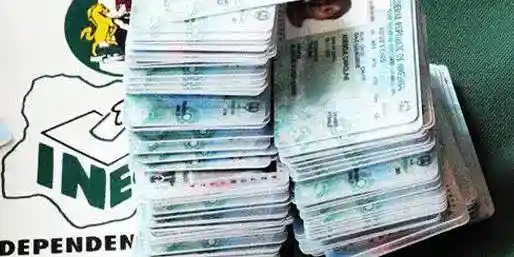INEC Debunks Report on Plans to Destroy Uncollected PVCs
- Advertisement -
The Independent National Electoral Commission (INEC) has denied recent claims in a national newspaper that it is planning to destroy over six million uncollected Permanent Voter Cards (PVCs) dating back to the 2015 voter registration exercise. The Commission labeled the report as false and urged the public to disregard it.
INEC’s Official Statement
In a post on its official X (formerly Twitter) handle, INEC clarified its stance, stating:
“At no time did the Commission contemplate the destruction of uncollected PVCs. The public is advised to discountenance the story.”
- Advertisement -
This statement comes amid ongoing discussions about improving the voter accreditation process ahead of future elections.
| Key Facts | Details |
|---|---|
| Claim | INEC planning to destroy uncollected PVCs |
| INEC’s Position | Denied the claim, calling it incorrect |
| Affected PVCs | Over six million from 2015 voter registration |
| Source of Clarification | INEC’s official X handle |
Future of Voter Accreditation: PVCs and BVAS
- Advertisement -
In a bid to enhance electoral transparency and efficiency, INEC has proposed reforms to the voter accreditation process. During a quarterly consultative meeting with Resident Electoral Commissioners (RECs) in Abuja, INEC Chairman, Prof. Mahmood Yakubu, discussed the potential shift away from PVCs as the sole requirement for voter accreditation.
Read Also: Five Killed in Delta Tanker Explosion; First Bank and Access Bank Branches Destroyed
Key Highlights of the Proposed Changes:
- Advertisement -
- Introduction of BVAS: The Bimodal Voter Accreditation System (BVAS) would allow voters to use computer-generated slips or downloadable accreditation forms as alternatives to PVCs.
- Continued Use of PVCs: Voters with existing PVCs can still use them for voting.
- Cost Efficiency: The reforms aim to reduce costs and eliminate challenges around PVC collection and misuse, such as vote buying.
Prof. Yakubu stated:
“This will not only save cost, but also eliminate the issues around the collection of PVCs and the diabolical practice of buying up the cards from voters in order to disenfranchise them.”
| Proposed Accreditation Methods | Advantages |
|---|---|
| PVCs | Familiarity and continuity |
| Computer-Generated Slips | Cost efficiency and accessibility |
| BVAS | Enhanced security and transparency |
Recommendations and Stakeholder Input
As part of its review of the 2023 general elections, INEC has engaged extensively with internal and external stakeholders. One recommendation suggested withdrawing uncollected PVCs issued since 2015 to streamline the process. However, no official decision has been made on this matter.
- Advertisement -
INEC’s Commitment to Electoral Reforms
INEC’s rejection of the false report underscores its commitment to transparency and effective voter management. As the Commission continues its reforms, the proposed introduction of BVAS and computer-generated slips is expected to make the electoral process more inclusive and efficient. Voters are encouraged to stay updated on changes to ensure their participation in future elections.
- Advertisement -


